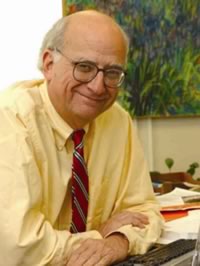
Michael Gazzaniga, PhD, will deliver the lecture “Determinism, Consciousness and Free Will.”
Emory University Center for Ethics, Yerkes National Primate Research Center and The Neuroscience Initiative will present the First Annual Neuroscience and Ethics Award Lecture, “Determinism, Consciousness and Free Will” on January 18 at 4 pm at Emory’s Harland Cinema at the Dobbs University Center.
The guest speaker, and first to be recognized with this award, is Michael Gazzaniga, PhD, a scientist and author considered one of the pioneers in the emerging field of cognitive neuroscience.
“Dr. Gazzaniga is a world renowned scientists who, in addition to his other accomplishments, pioneered the study of split-brained patients and so revealed how the different hemispheres of our brains function,†says Paul Root Wolpe, PhD, director of the Emory University Center for Ethics.
“He has won our First Annual Emory Neuroscience and Ethics Award because, throughout his career, he has tried to apply his scientific understandings to improve the human condition, including serving on President Bush’s Bioethics Commission and publications such as his book The Ethical Brain. I can think of no finer choice to be the first recipient of this Award.â€
Gazzaniga founded and presides over the Cognitive Neuroscience Institute and is editor-in-chief emeritus of the Journal of Cognitive Neuroscience, which he also founded. In addition, he is the one of the co-founders of the Cognitive Neuroscience Society, which was named in the late 1970’s.
In 1997, Gazzaniga was elected to the American Academy of Arts & Sciences. He is the past-president of the Association for Psychological Science, served on the President’s Council on Bioethics and, in 2005, was elected to the National Academies Institute of Medicine. In 2009, he presented the Gifford Lectures at the University of Edinburgh.
Gazzaniga’s book The Ethical Brain describes in laymen’s language how the brain develops a value system, and the ethical dilemmas facing society as our comprehension of the brain expands.
For more information, contact Jamila Garrett-Bell.





![Kirch[1] Darrell G. Kirch, MD](http://www.emoryhealthsciblog.com/wp-content/uploads/2009/11/Kirch1-150x150.jpg)